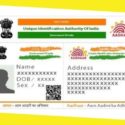Reasons Why Your Demat Account May Be Malfunctioning
This post was last updated on November 23rd, 2024

The Demat account was introduced to the Indian trading systems in 1996 and with its arrival, investors had to ensure that their physical certificates were converted to an electronic format and were being held in their Demat account. To put it simply, the Demat account is used to enable electronic settlements of all transactions and trades. The function of the account is similar to that of a bank account, in that a bank account holds your money, whereas a Demat account acts as a holding account for your securities. It is not to be confused with a Trading account, as they share different purposes and you will need a Trading account for all your transactions along with your Demat account.
A Demat account and Demat account number is required for all transactions and the electronic settlement of trades. The investor will be required to sign an agreement with the DP that will hold details regarding the duties and rights of the DP and the investor. The agreement will also include the rate of all future charges the DP may levy on the account holder.
The DP will then proceed to fill-in the account opening form for the investor and along with certain required documents (such as a passport-sized photograph, proof of address and a PAN card) the DP will submit the form. Once the form has been reviewed the DP will create a new account and provide the account holder with the Demat account number. The account holder is then free to purchase and sell shares from their account. An investor can either handle their own trading or they could opt for hiring a broker who will oversee their trading for them. Although it is mandatory to have a Demat account in order to trade in Indian stock markets, the Demat account merely acts as a holding account. In order to purchase and sell shares to trade, an investor will require a Trading account as well.
When shares are purchased through the best Demat account in India, the purchase will reflect in the account holder’s statement of holdings. Generally, the purchased shares are credited to the account on T+2 days which is the day of the trade plus two days. If the investor wishes to sell the purchased shares their broker will have to be informed and a delivery instruction note will have to be filled in. This note will hold the details regarding the stock being sold. Once the shares have been debited to the account, the payment for the shares sold will come through and will automatically reflect on the account’s holdings.
Despite it being mandatory to own a Demat account in order to trade in Indian stock markets, there are several advantages to using a Demat account:
1. Because of the self-reliant nature of the account, brokerage charges are significantly reduced.
2. Prior to the 1996 Dematerialization, share certificates were on paper handed out in their physical format. As a result of electronic conversion, risks that were associated with the physical share certificates are now eliminated.
3. The electronic nature of the system ensures that traders can conduct any and all business from home. When an investor makes a purchase or a sale, it immediately reflects on their account. There is no wait for the certificate of proof to be delivered or picked up.
4. The DP is in charge of the transmission of securities, this eliminated the need to individually inform the companies involved.
5. The transaction fees are significantly reduced.
6. Debt and equity instruments can be simultaneously held in one Demat account.
7. Deliveries from brokers such as the DIS (Delivery Instruction Slip) can be instantly received by the account holders.
Recently most DPs (especially financial institutions such as banks) has started to waive off the account opening charges for a Demat account. In case of brokers, they do charge an opening fee but it is considerably nominal. Even though the opening charges maybe limited or completely waived off in certain cases there are a number of other charges that is deducted from an account The heftiest charge out of all is AMC or the Annual Maintenance Charge that is annually levied on accounts based on the kind of account and the number of transactions that have been made through it (more transactions equals a lesser rate and vice versa). Other charges include transaction fees service tax, Swach Bharat and Kisan Kalyan.
Once the account has been created it is important to keep a track of all transactions and activities pertaining to the account, and to generally maintain the account. As an account holder it is essential to keep track of the account even if it is not in daily use. If an account holder actively manages the activities of their account, in that they conduct their own trading, it is simpler for them to keep a check on the account. In case the account holder has hired a broker to trade on their behalf it is important to be more vigilant. Investors need to also keep regular tabs on their DP. IT is important to regularly follow-up with the DP regarding details that pertain to the account. Most DPs offer some kind of a holding and transaction statement on a monthly basis that account holders need to look out for.
When an account holder is aware that they will not be using their account for a period of time, they could opt to have their account “frozen”. To “freeze” one’s account simply means to declare the account inactive for a specific period of time. This measure is designed mainly as a preventative measure to ensure that while an account holder’s account lays inactive, it does experience any activity that has not been sanctioned by the account holder themselves. By freezing one’s accounts, an account holder need not worry about their account holdings being tampered with. Similar to when it is frozen, an account can only be unfrozen by the explicit directions of the account holder.
Recommended For You
What Is Preferred Equity Real Estate?
Most Inside
Most Inside offers high-quality recommendations and valuable updates to enhance all aspects of your life, providing premium guidance and enriching experiences.




